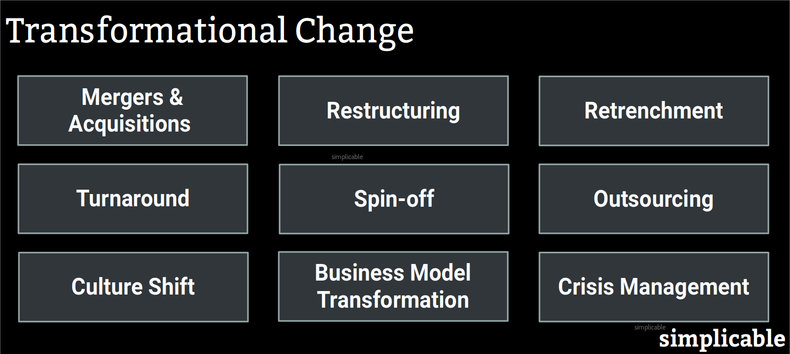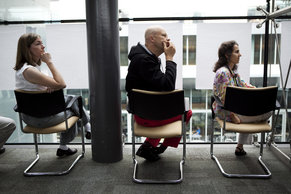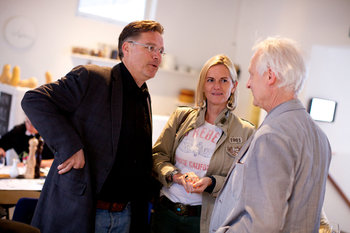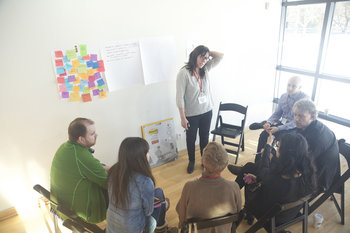

Mergers & Acquisitions
The process of integrating two or more firms. This is transformational change unless you are acquiring a firm that is very small in comparison to you.Restructuring
Restructuring is a broad term for major changes to your organizational chart. For example, a firm that gets rid of its information technology department by integrating these functions into business units.Retrenchment
A retrenchment is a restructuring that dramatically reduces business volumes. For example, closing a factory, department or division of a company.Turnaround
Turnaround is the practice of leading an organization that is failing. This often involves completely replacing management and questioning every assumption upon which the organization is built.Spin-off
The process of breaking up a company or spinning off a business unit as its own firm. In some cases, this unlocks significant value. In other cases, monopolies are forced to break up by government action. For example, a telecom company that is forced to spin-off its media businesses because the firm has engaged in anti-competitive practices by leveraging its internet infrastructure to harm other media companies.Outsourcing
The process of assigning work or entire business processes to external partners. This is often a gradual process but can also be done as a transformational change. For example, a bank that sells all of its data centers to an outsourcing partner.Culture Shift
The difficult process of shifting a culture. Cultures can't be changed directly because they emerge through the shared experiences of groups. As such, changing them can be a turbulent process. For example, changing a culture of promotion based on seniority or identity factors to be a meritocracy would typically involve significant resistance to change that requires an accomplished change management team.Business Model Transformation
Changing the way that a firm creates and captures value. For example, a farm that transforms itself to be an agritourism business.Crisis Management
The process of managing a crisis can result in transformational change. For example, a bank that suddenly has its entire firm working from home due to a disaster such that it undergoes a major culture shift.| Overview: Transformational Change | ||
Type | ||
Definition | A structural change that impacts everyone in an organization and entails significant risks. | |
Related Concepts | ||





























